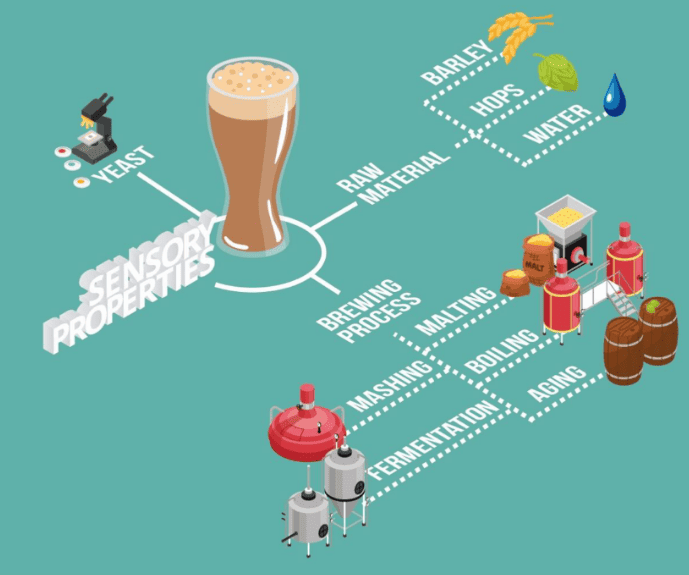Discover the surprising factors that determine how many beers it takes to get drunk and how they affect your body.

Image courtesy of Anete Lusina via Pexels
Table of Contents
Have you ever wondered how many beers it takes to get drunk? It’s a common question that doesn’t have a straightforward answer. Alcohol affects everyone differently, depending on various factors. In this blog post, we will explore the science behind alcohol metabolism, individual tolerance levels, and the different factors influencing intoxication.
How Alcohol Metabolism Works
alcohol metabolism is a complex process that occurs in the body after consuming alcoholic beverages. When you drink beer, wine, or other alcoholic drinks, the alcohol is absorbed into your bloodstream through the stomach and small intestine. The liver then metabolizes the alcohol using enzymes.
The process of alcohol metabolism involves several steps, including oxidation, reduction, and elimination. The speed at which alcohol is metabolized can vary depending on factors such as liver function and genetics. Blood alcohol concentration (BAC) is a measure of the amount of alcohol in your bloodstream and is used to determine intoxication levels.
Individual Tolerance Levels
Individual tolerance to alcohol varies widely among people. Some individuals may be able to consume several beers before feeling drunk, while others may start feeling intoxicated after just one or two drinks. Tolerance to alcohol can be influenced by genetic factors, body weight, and overall health.
People with a higher tolerance to alcohol may require more drinks to feel the effects of intoxication. On the other hand, individuals with a lower tolerance may experience intoxication more quickly. It’s essential to know your own limits and drink responsibly to avoid negative consequences.
Factors Influencing Intoxication
Several factors can influence how quickly you get drunk after consuming alcohol. One of the significant factors is food consumption. Eating a meal before drinking can help slow down alcohol absorption and reduce the risk of intoxication. Fatty foods are particularly effective in slowing down alcohol absorption.

Image courtesy of via Google Images
Another factor that plays a role in intoxication is the type of alcohol consumed. Mixing different types of alcohol, such as beer, wine, and spirits, can lead to increased intoxication levels. Different types of alcohol have varying alcohol content, which can impact how quickly you feel drunk.
Age, gender, and overall health also play a role in alcohol intoxication. Younger individuals, women, and people with underlying health conditions may be more susceptible to the effects of alcohol. It’s essential to consider these factors when consuming alcohol and to drink in moderation.
Conclusion
Understanding how many beers it takes to get drunk is not a simple calculation. Alcohol metabolism, individual tolerance levels, and various factors influencing intoxication all play a role in determining how alcohol affects you. By being aware of these factors and drinking responsibly, you can enjoy alcohol in a safe and enjoyable manner.
Next time you’re out with friends and wondering how many beers it will take to get drunk, remember to consider the science behind alcohol metabolism, your own tolerance levels, and the different factors influencing intoxication. Stay safe, drink responsibly, and have a great time!
How does body weight affect how many beers it takes to get drunk?
Body weight plays a role in alcohol metabolism. Individuals with a higher body weight may require more drinks to feel intoxicated compared to those with a lower body weight.
Can genetics influence how many beers it takes to get drunk?
Yes, genetics can affect alcohol metabolism and tolerance levels. Some individuals may have genetic variations that make them more or less susceptible to the effects of alcohol.
Does the type of alcohol consumed impact intoxication levels?
Yes, different types of alcohol have varying alcohol content, which can affect how quickly you feel intoxicated. Mixing different types of alcohol can also lead to increased intoxication levels.
How does age influence how many beers it takes to get drunk?
Age can impact alcohol metabolism and tolerance levels. Younger individuals may be more susceptible to the effects of alcohol compared to older individuals, affecting how many beers it takes to get drunk.
Generated by Texta.ai Blog Automation
Leave a Reply